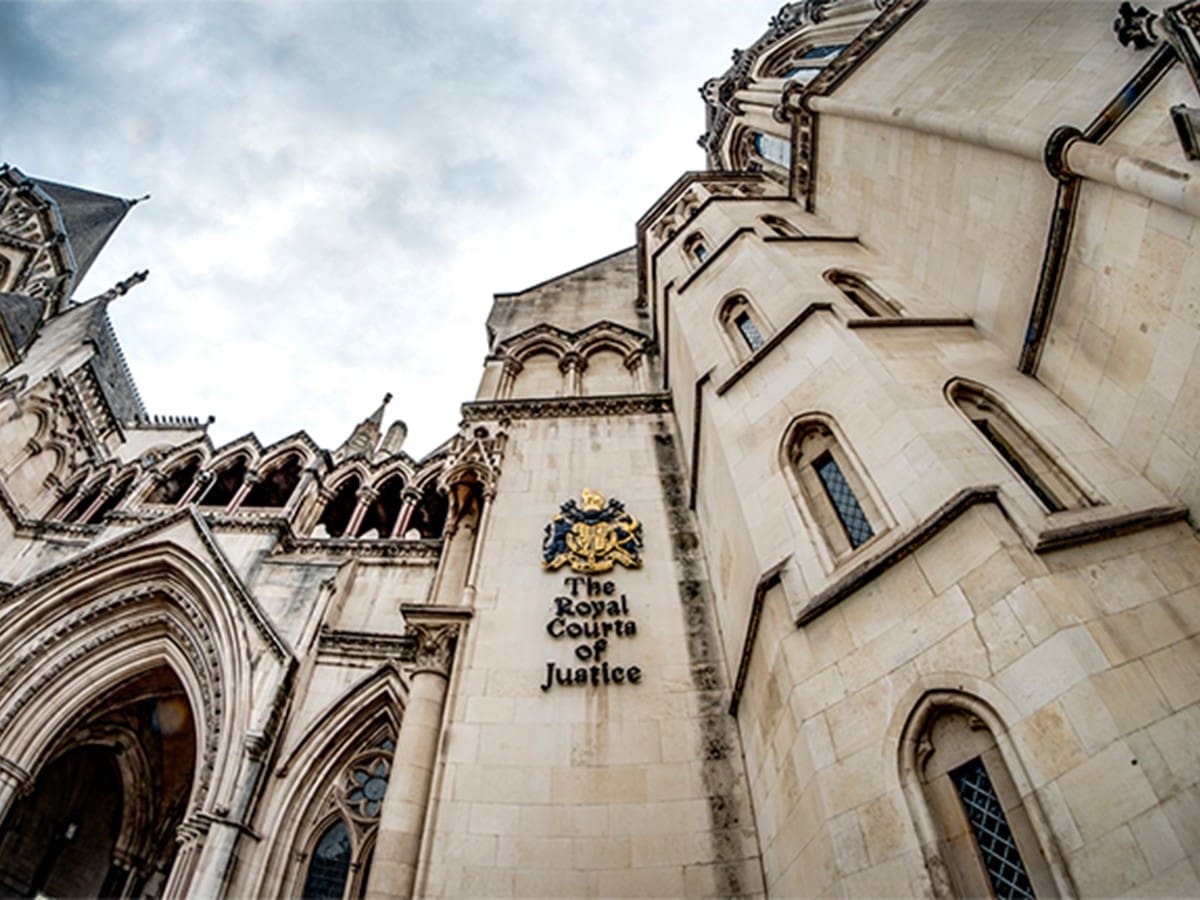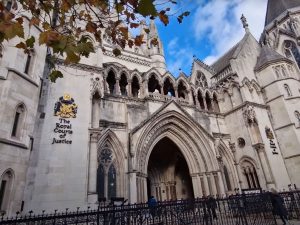Following a pattern of jury acquittals of environmental defenders and anti-genocide activists, which exposes the media fiction that the British government’s ‘crackdown on protest’ is in any way democratic, the Court of Appeal has today backed the Attorney General’s call to remove what was for many their last remaining line of legal defence.
It has ruled that mass loss of life from climate breakdown and the government’s failure to act on the science are irrelevant to the circumstances of an action, for the purposes of the defence of consent to damage to property (Criminal Damage Act 1971, s.5(2)(a)).
Court of Appeal: siding with the climate-wrecking Tories
The counter-intuitive decision bears an uncanny resemblance to the recent ruling of Judge Silas Reid that the climate crisis is ‘irrelevant’ to the defence of consent, which came after the Court of Appeal hearing but before the issue of its judgement, raising the question of whether he was tipped off by the Court of Appeal in relation to their intended ruling, which would be unlawful.
Less than a month after the court hearing on 21 February, which saw members of the public stage a ‘peaceful makeover’ of the Royal Courts of Justice, the Lady Chief Justice ruled:
Evidence from the defendant about the facts of effects of climate change would be inadmissible.
The ruling follows a number of similar rulings by the British courts, which taken together operate to silence activists in court, preventing them from defending themselves and explaining their motivations to a jury.
A history of removing legal defences
The programmatic removal of legal defences from activists began in earnest in January 2021, when the High Court quashed the acquittal of an environmental defender, who had been cleared of criminal damage on the basis that her intention was to prevent damage to property, in particular in countries such as Bangladesh where countless people are already losing their homes to floods caused by human-made climate change.
The High Court ruled she had no right to rely on the statutory defence in the Criminal Damage Act 1971 (s.5(2)(b)). It replaced the original not guilty verdict with a guilty verdict.
Then in February 2021, the Court of Appeal in quashing the convictions of the Stansted 15 for a terrorist offence (the Stansted 15 had peacefully blocked a deportation flight, which exposed numerous people serious harm, and which was subsequently found to be unlawful) ruled that activists could not rely on the defence of necessity, i.e. action necessary to prevent serious harm, even if there was compelling evidence that their actions were necessary to prevent serious harm.
Following the acquittal of the Colston 4 in January 2022, for toppling the statue of the slave-trader Edward Colston into Bristol Harbour, Suella Braverment referred the case to the Court of Appeal. The Court of Appeal ruled that the human rights based defences, advanced by the Colston 4, could not be presented to a jury in the future.
In April 2023, Judge Shane Collery prevented Marcus Decker and Morgan Trowland from arguing to the jury that their action in dropping a Just Stop Oil banner from the Queen Elizabeth Bridge was a reasonable excuse in light of the mass loss of life from the climate crisis – even though ‘reasonable excuse’ is a statutory defence to public nuisance, the crime they were charged with, and which was introduced in the Police, Crime, Sentencing and Court Act s. 78 specifically for the context of activism.
After leaving them with no defence, leading to their convictions, the Judge subsequently sent them to prison for two years seven months and three years respectively.
Court of Appeal: following on from “alarming” crackdown
In the absence of any defence, some judges, such as Judge Silas Reid at Inner London Crown Court, have taken to banning activists from explaining their motivations to the jury and banning them from using words such as ‘climate change’ and ‘fuel poverty’ in their courtroom. Judge Reid has sent 3 people to prison just for using those words in court.
Such measures prompted an extraordinary intervention by the UN Special Rapporteur, Michel Forst, earlier this year:
I was … alarmed to learn that, in some recent cases, presiding judges have forbidden environmental defenders from explaining to the jury their motivation for participating in a given protest or from mentioning climate change at all.
It is very difficult to understand what could justify denying the jury the opportunity to hear the reason for the defendant’s action, and how a jury could reach a properly informed decision without hearing it, in particular at the time of environmental defenders’ peaceful but ever more urgent calls for the government to take pressing action for the climate.
Judge Reid: a serial offender
After witnessing attempts to silence activists in court, Trudi Warner, a 69 year-old retired social worker and legal observer, demonstrated outside Inner London Crown Court with a sign communicating the constitutional principle of jury equity, which dates back to 1670, i.e. that a jury can acquit a defendant as a matter of conscience, irrespective of the directions of the judge.
Judge Reid had her arrested for this. On 18 April the Solicitor General will apply to the High Court to have her committed to prison.
In a recent trial Judge Reid threatened a jury with criminal charges if they applied their conscience to the case. Speaking anonymously to Private Eye, a leading criminal KC said:
I’ve never encountered a judge threatening jurors in the way that Judge Reid did. That suggests a clear determination by him to deter them from returning a verdict independently.
These events have prompted critical headlines around the world from the US to Japan, Spain to India.
Defend our juries – and our activists
A spokesperson for campaign group Defend Our Juries said:
It appears that Judge Reid was tipped off by the Court of Appeal that it would rule that the climate crisis was irrelevant to the circumstances of an action. It’s impossible to believe that two courts could simultaneously arrive at such a bizarre interpretation of the law independently.
When will the legal profession and the judiciary wake up to what’s happening? It must be obvious to every serious observer that British law is being instrumentalised, on behalf of the fossil fuel industry, to silence and repress those taking action to confront the extreme danger from climate breakdown. If the urgent interventions from the UN and civil society organisations are not setting warning lights flashing, what will it take?
With the established courts failing to discharge their basic function of protecting the British public from the abuse of power, it’s inevitable that others will step up.
Featured image via the Royal Courts of Justice




